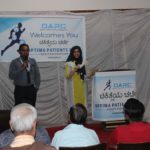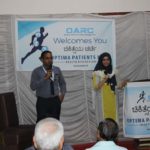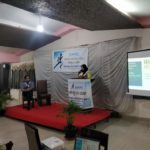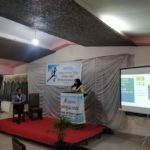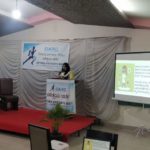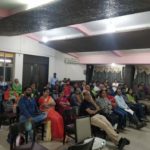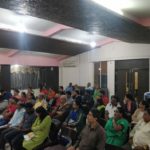Overview
Diffuse idiopathic skeletal hyperostosis (DISH) is a bony hardening of ligaments in areas where they attach to your spine.
Also known as Forestier’s disease, this condition might not cause symptoms or require treatment. If it does cause symptoms, the most common are mild to moderate pain and stiffness in your upper back. DISH can also affect your neck and lower back, and some people have DISH in other areas, such as shoulders, elbows, knees and heels.
DISH can be progressive. As it worsens, it can cause serious complications.
Symptoms
You might have no signs or symptoms with DISH. For those who have signs and symptoms, the upper portion of the back is most commonly affected. Signs and symptoms might include:
Stiffness. Stiffness may be most noticeable in the morning.
Pain. You might feel pain in your back or in other affected areas, such as your shoulder, elbow, knee orheel.
Loss of range of motion. You might notice this most when stretching side to side.
Difficulty swallowing or a hoarse voice. You might have these if you have DISH in your neck.
When to see a doctor
Make an appointment with your doctor if you have persistent pain or stiffness in any joint or in your back.
Causes
DISH is caused by the buildup of calcium salts in the ligaments and tendons and a hardening and overgrowth of bone. But what causes these to occur is unknown.
Risk factors
Doctors have some idea of what can increase your risk of the condition. Risk factors include:
Sex. Men are more likely to develop DISH.
Older age. DISH is most common in older adults, especially in people older than 50.
Diabetes and other conditions. People with type 2 diabetes might be more likely to develop DISH thanare those who don’t have diabetes. Other conditions that can raise insulin levels in your body may also increase your risk, including hyperinsulinemia, prediabetes and obesity.
Certain medications. Long-term use of medications called retinoids, such as isotretinoin (Amnesteem,Claravis, others), which are used to treat skin conditions such as acne, can increase your risk.
Complications
People with DISH are at risk of certain complications, such as:
Disability. Loss of range of motion in the affected joint can make it difficult to use that joint. For instance,DISH in your shoulder can make it difficult to use your arm.
Difficulty swallowing. Bone spurs in the neck can put pressure on your esophagus. The pressure frombone spurs can also cause a hoarse voice or sleep apnea, a sleep disorder in which you stop breathing repeatedly during sleep. Rarely, this can become serious and might require surgery to remove the bone spurs.
Spinal fracture. DISH can increase your risk of breaking bones in your spine, especially if you havemoderate to severe disease. Even minor injuries can cause fractures. Breaks might require surgery to repair.
Any use of this site constitutes your agreement to the Terms and Conditions and Privacy Policy linked below.
Mayo Clinic is a nonprofit organization and proceeds from Web advertising help support our mission. Mayo Clinic does not endorse any of the third party products and services advertised.
Advertising and sponsorship policy
Advertising and sponsorship opportunities
A single copy of these materials may be reprinted for noncommercial personal use only. “Mayo,” “Mayo Clinic,” “MayoClinic.org,” “Mayo Clinic Healthy Living,” and the triple-shield Mayo Clinic logo are trademarks of Mayo Foundation for Medical Education and Research.
© 1998-2019 Mayo Foundation for Medical Education and Research (MFMER). All rights reserved.




